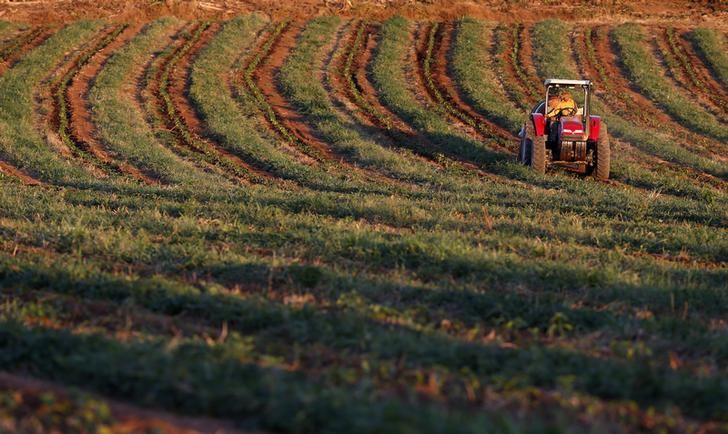By Fergal Smith
TORONTO, April 10 (Reuters) - The Canadian province of Saskatchewan, home to major potash and uranium reserves, said on Tuesday it would run a smaller deficit in the current fiscal year and balance its books in 2019-20 as it keeps a tight lid on spending despite projected higher commodity prices.
Saskatchewan, which has endured a slump in its resource revenues in recent years, projected a C$365 million deficit for 2018-19, which follows a C$595 million deficit forecast for the fiscal year that ended on March 31. The 2018-19 projection does not include a contingency reserve.
The right-leaning Saskatchewan Party, which controls a provincial majority and is led by Scott Moe, expects to run a modest C$6 million surplus in 2019-20 and then projects higher surpluses in future years.
Moe was chosen in January to replace Brad Wall as party leader and the province's premier. Wall retired after serving as premier for a decade. is home to some of the world's biggest potash and uranium reserves, which are mined by companies including Nutrien Ltd NTR.TO and Cameco Corp MOS.N . The provincial government earns royalties from production of its mined resources as well as of crude oil.
Saskatchewan forecast an average 2018 price for the crop nutrient of $190.43 per tonne, up from $180.58 last year.
It expects the price of West Texas Intermediate oil CLc1 in 2018 to average $59 per barrel, up from $50.78 per barrel in 2017. The province is Canada's second largest oil producing province after Alberta. O/R
Spending is projected to rise 0.5 percent in 2018-19 to C$14.6 billion, while revenue is seen 2.2 percent higher at C$14.2 bln, helped by a predicted return to growth in the economy after contraction in 2015 and 2016.
Taxation revenue is projected to climb 6.2 percent after the province last year bumped its sales tax up by 1 percent and applied it to more items in an effort to reduce its reliance on volatile resource revenues. The government said it will put on hold planned further reduction in personal income tax rates.
Non-renewable resource revenue is projected to rise 4.4 percent to nearly C$1.5 billion. Still, that is C$1.1 billion lower than in 2014-15.
Saskatchewan expects total public debt to climb by C$2.3 billion to C$20.0 billion, by March 31, 2019, due mostly to financing of infrastructure assets. At 15 percent in 2017-18, only British Columbia, among the provinces, has a lower net-debt as a share of gross domestic product.
The budget comes just days after fifteen people were killed in the province when a bus carrying a Canadian junior ice hockey team collided with a truck, in one of the worst disasters to strike Canada's sporting community.
